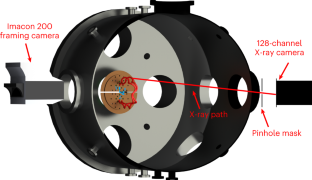2023-04-06 米国国立再生可能エネルギー研究所(NREL)
 LIBRA is designed to help answer key questions to support development of a resilient and robust U.S. supply chain to grow domestic manufacturing and meet decarbonization goals. Image from iStock
LIBRA is designed to help answer key questions to support development of a resilient and robust U.S. supply chain to grow domestic manufacturing and meet decarbonization goals. Image from iStock
LIBRAは、サプライチェーンにおけるギャップを特定し、リチウムイオン電池の製造、再利用、リサイクルの経済性を評価するための評価と分析を提供するコンピュータモデルです。
電気自動車や送電網の電化のためにリチウムイオン電池の需要が高まる中、LIBRAは長期的な傾向を評価し、様々なシナリオを検証することで、全国の送電網と自動車の電化のための持続可能性と回復力を確保することを可能にします。
また、LIBRAは、電気自動車の普及によるリチウムイオン電池の需要増を評価することができ、世界の政策が米国のサプライチェーンに与える影響の軽減に貢献します。
<関連情報>
- https://www.nrel.gov/news/program/2023/libra-model-guides-development-sustainable-battery-supply-chain.html
- https://www.sciencedirect.com/science/article/abs/pii/S0921344923000733?via%3Dihub
米国におけるリチウムイオン電池リサイクルからの鉱物回収について mineral recovery from lithium-ion battery recycling in the United States
Dustin Weigl, David Young
Resources, Conservation and Recycling Available online: 24 February 2023
DOI:https://doi.org/10.1016/j.resconrec.2023.106936
Abstract
The United States has identified several lithium-ion battery materials as critical for reaching the national emission reduction targets that have been set in accordance with the 2015 Paris Agreement. However, with few natural resources available domestically, there is a rapidly growing focus on the development of a domestic recycling industry to recover these materials from end-of-life batteries. In this paper, we use the Lithium-Ion Battery Resources Assessment (LIBRA) system dynamics model to evaluate the impact of automated battery sorting technology in terms of the shares of cobalt and nickel that are recovered through recycling. Findings show that automated sorting has clear benefits over manual sorting methods by helping recyclers selectively process high-cobalt batteries. By maximizing cobalt recovery, recycling becomes more profitable and drives greater investment in recycling capacity, resulting in a higher share of nickel and cobalt recovered from EOL batteries over time.



